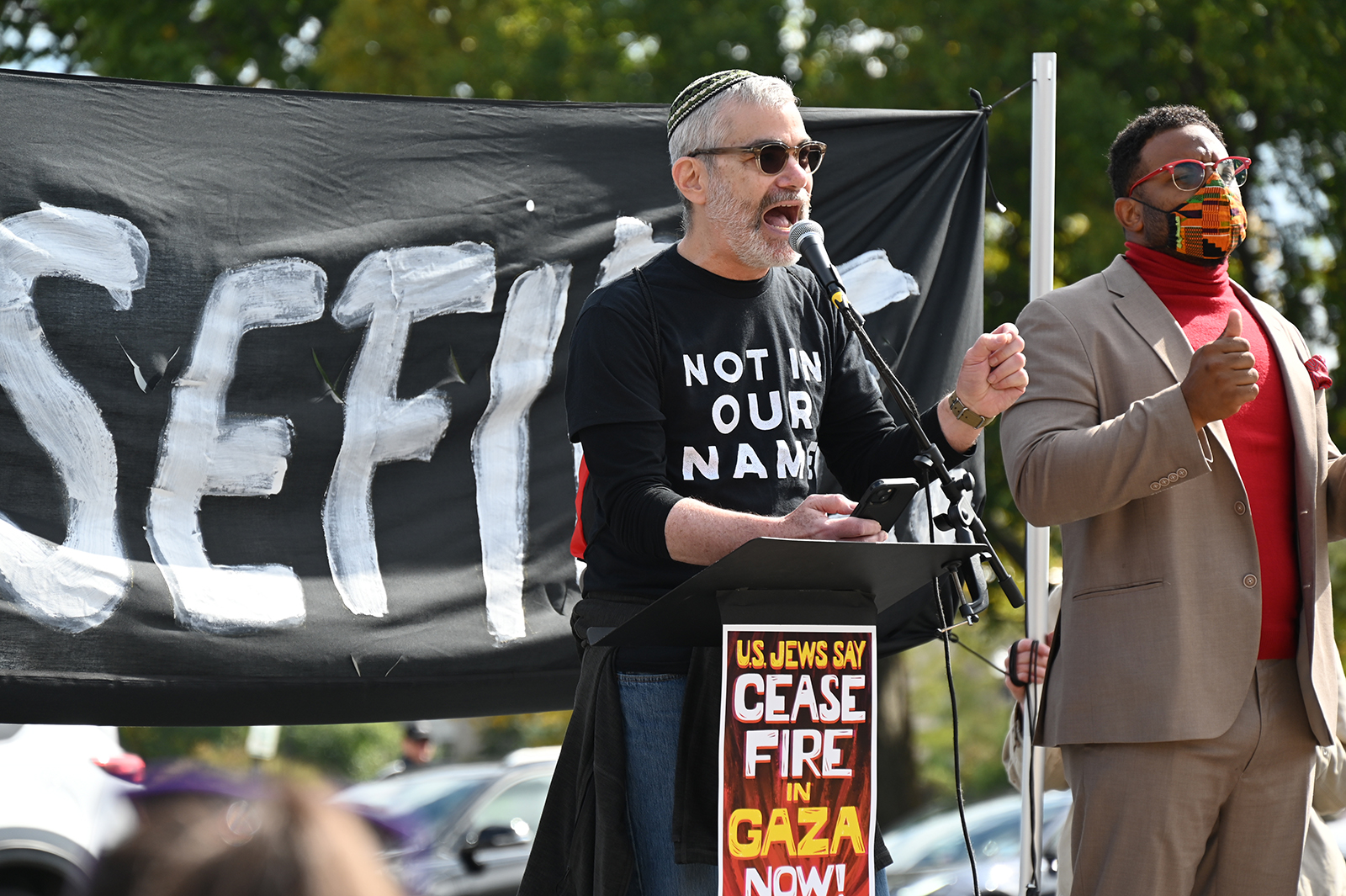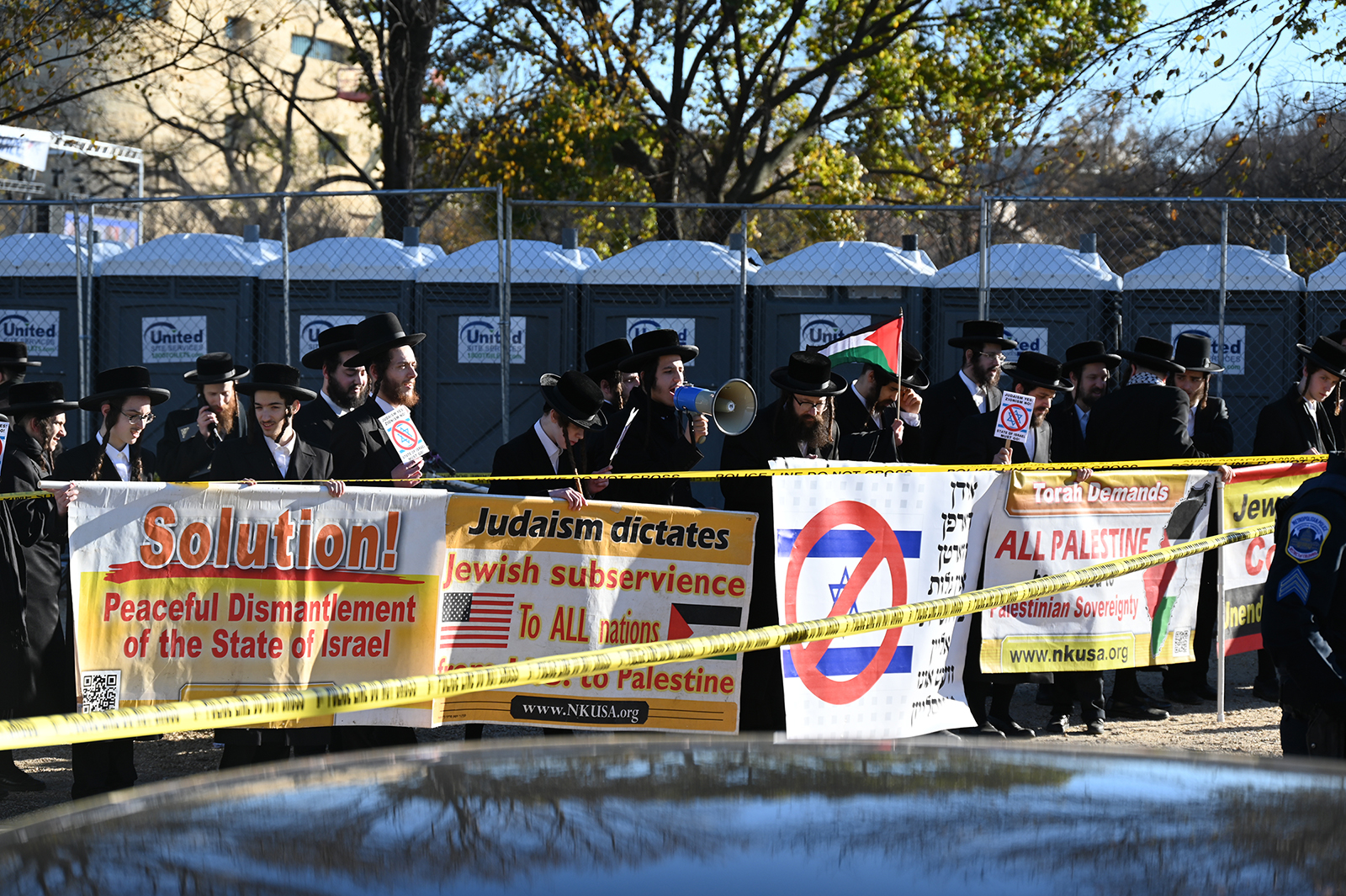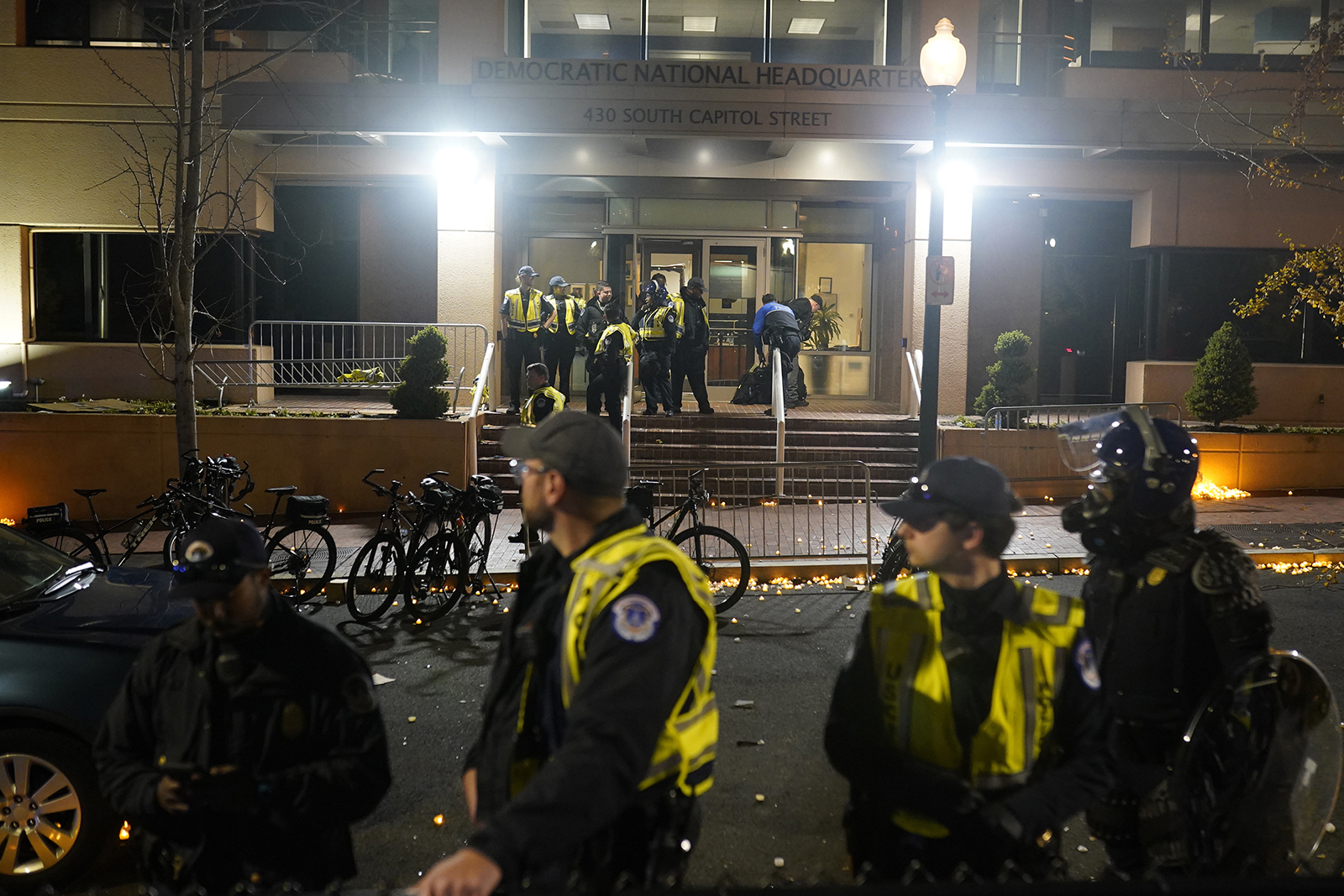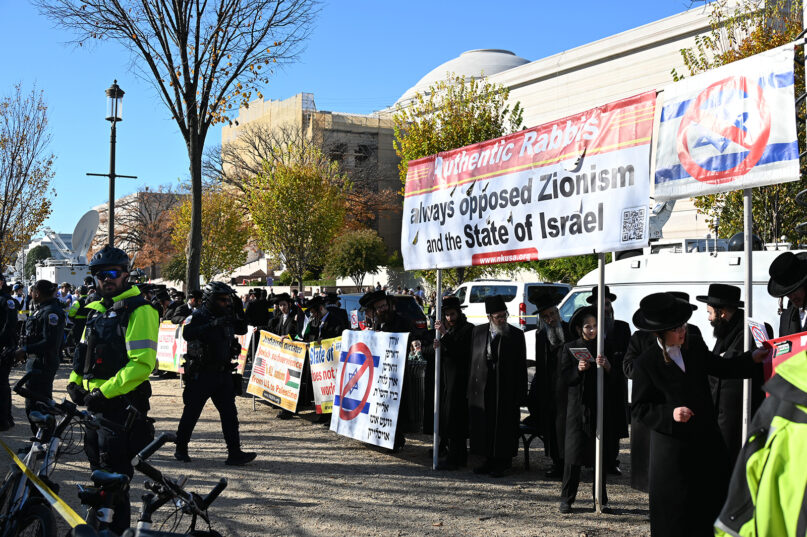WASHINGTON (RNS) — The House of Representatives approved a Republican-drafted resolution condemning antisemitism on Tuesday (Dec. 5), splitting Democrats over the bill’s language and sparking debate about whether anti-Zionism is tantamount to hatred of Jewish people.
The measure — which included a declaration that anti-Zionism, or opposition to a Jewish state, “is antisemitism” — was approved Tuesday evening in a 311-14 vote. But political analysts were quick to note a peculiarity: 13 Democrats voted against the measure, while 95 Democrats voted in favor, but another 92 simply voted “present.” An additional 13 Democrats didn’t vote at all.
The split was emblematic of ongoing fissures in the Democratic Party that have emerged since the outbreak of the Israel-Hamas war, which has killed around 1,200 Israelis and more than 15,000 Palestinians since Oct 7.
Rep. Jerry Nadler of New York, a Democrat representing what he called “perhaps the largest Jewish constituency in this country,” was among those who railed against the bill ahead of the vote. Speaking on the House floor on Monday, Nadler, the most senior Jewish lawmaker in the House, noted that while he believes “most anti-Zionism is indeed antisemitic,” he rejects the idea that the two are synonymous.
He chastised the Republicans proposing the bill, saying, “The authors, if they were at all familiar with Jewish history and culture, should know about Jewish anti-Zionism that was, and is, expressly not antisemitic.” Nadler went on to note that certain Orthodox Hasidic communities, including Samars in New York, hold views that are “at odds with the modern Zionist conception,” such as believing that only the messiah can bring about the “true Israel.”
The anti-Zionist subset of the ultra-Orthodox community has grown more visible at various demonstrations organized since the outbreak of the Israel-Hamas war. They were present at a large gathering in support of Palestinians in Washington and counterprotested last month’s March for Israel, when tens of thousands of demonstrators traveled to the National Mall to show their support for the Jewish state. Alongside the rally, several dozen Orthodox Jewish men stood holding anti-Zionist banners, surrounded by police. Many March for Israel participants shouted at the group as they passed, with a few breaking into a chant: “You are not like us!”

Rabbi Brant Rosen, head of Tzedek Chicago, speaks during a cease-fire rally Oct. 18, 2023, on the National Mall in Washington. (RNS photo/Jack Jenkins)
There is also at least one self-described anti-Zionist synagogue in the U.S.: Tzedek Chicago, which is led by Rabbi Brant Rosen, who has been active in the movement calling for a cease-fire in Gaza.
In Nadler’s floor speech, he also warned that progressive Jewish voices that criticize Israel are also sometimes referred to by their detractors as anti-Zionist, which could shift the definition of antisemitism.
“That could make every Democratic Jewish member of this body — because they all criticized the recent Israeli judicial reform package — de facto antisemites,” he said. “Might that be the authors’ intention?”
Other Jewish Democrats, however, appeared open to the measure ahead of the vote. Rep. Greg Landsman of Ohio, who is among the few Democrats who broke ranks last month to back a controversial Israel aid package and voted to censure fellow Democrat Rep. Rashida Tlaib of Michigan, expressed support for the measure.
“It is of course fine to criticize any government, including Israel’s. But I do believe that denying Jews a state is antisemitic, so I plan to vote for the bill,” Landsman told Axios on Tuesday.
In the lead-up to the final vote, Nadler, along with fellow Jewish Reps. Daniel S. Goldman of New York and Jamie Raskin of Maryland, urged Democrats to vote “present” on the overture.

Members of the anti-Zionist subset of the U.S. ultra-Orthodox Jewish community counterprotest during the March for Israel on Nov. 14, 2023, in Washington. (RNS photo/Jack Jenkins)
“Today’s Resolution … is just the latest unserious attempt by Republicans to weaponize Jewish pain and the serious problem of antisemitism to score cheap political points,” read a statement from the three Democrat lawmakers, noting they had introduced their own resolution as well.
“The threat of antisemitism and the safety of Jewish lives is not a game,” the statement added.
Those who voted against the resolution included several members of “The Squad,” a progressive group of Democratic lawmakers that includes New York Reps. Alexandria Ocasio-Cortez and Jamaal Bowman, Cori Bush of Missouri and Tlaib — the only Palestinian American in Congress. The group has been outspoken in support of a cease-fire in Gaza and recently voiced concern about being labeled antisemitic.
“They labeled us anti-Israel, they label us antisemitic and they label us terrorists,” Bush said at a news conference last month with lawmakers and Rabbis for Ceasefire. “They lie about us and they smear us. But we know the truth and the truth stands. We are rabbis. We are pastors. We are Congress members. We are surviving family members. We are human beings. And we are bound by our faith to demand a cease-fire now to demand an end to the violence now.”
The controversy sits at the nexus of two related dynamics: a spike in antisemitism — alongside a rise in anti-Muslim sentiment — since the outbreak of the Israel-Hamas war, and a debate over what constitutes antisemitism amid outrage over Israel’s ongoing assault into the Gaza Strip.

U.S. Capitol Police stand outside the headquarters of the Democratic National Committee in Washington, Nov. 15, 2023, after an Israel-Hamas war vigil turned violent. (AP Photo/Nathan Howard)
The two debates have overlapped since the early days of the conflict, when Jewish-led demonstrators staged cease-fire rallies outside the White House and in Capitol-area buildings, garnering widespread attention. In response, Jonathan Greenblatt, head of the Anti-Defamation League, accused one of the groups involved in the protest — Jewish Voice for Peace, which identifies as anti-Zionist — of being a hate group, and suggested the demonstrators — who included multiple rabbis — were antisemitic.
The resolution also characterized a recent cease-fire protest outside the Democratic National Committee headquarters — which included participation from Jewish Voice for Peace activists — as having “violently attacked” the building. That claim, repeated by Democratic and Republican lawmakers alike, has been disputed or challenged by activists who participated in the demonstration and accounts from journalists who were at the scene, such as Dave Weigel of Semafor.
Beth Miller, political director of Jewish Voice for Peace Action, condemned the recent resolution vote.
“Falsely stating that anti-Zionism is antisemitism conflates all Jews with the state of Israel and endangers our communities, while fueling deadly violence and censorship campaigns against Palestinians,” Miller said in a statement. “It’s truly shameful that Congress just passed such a dangerous and harmful resolution that makes a mockery of the real fight against antisemitism and the rising white nationalism that threatens marginalized communities across the country.”





